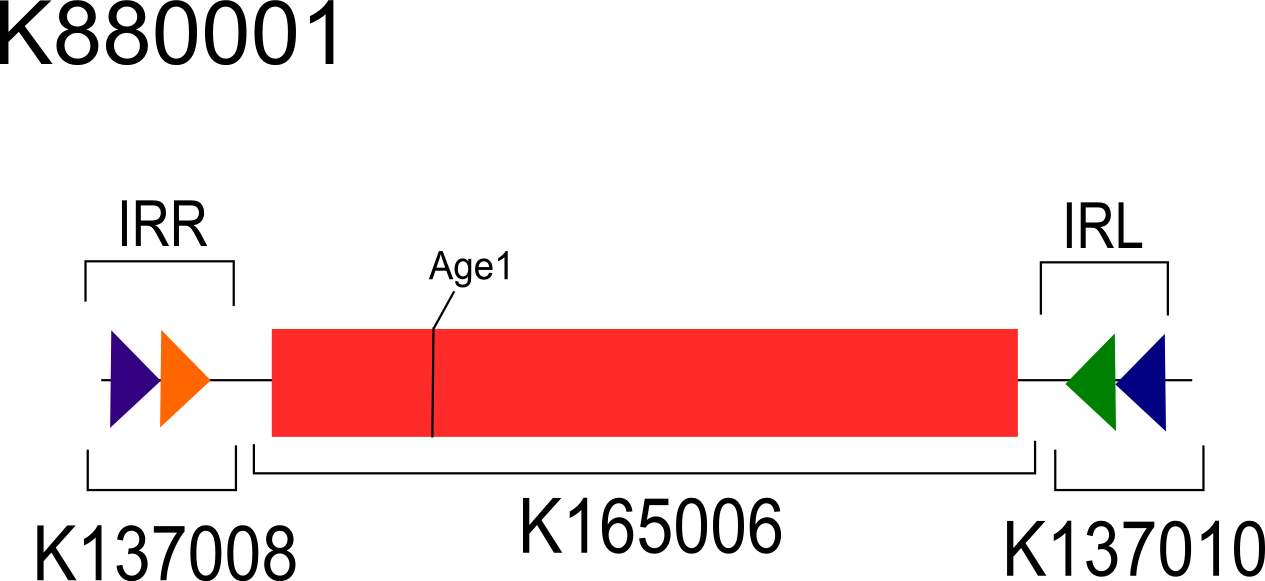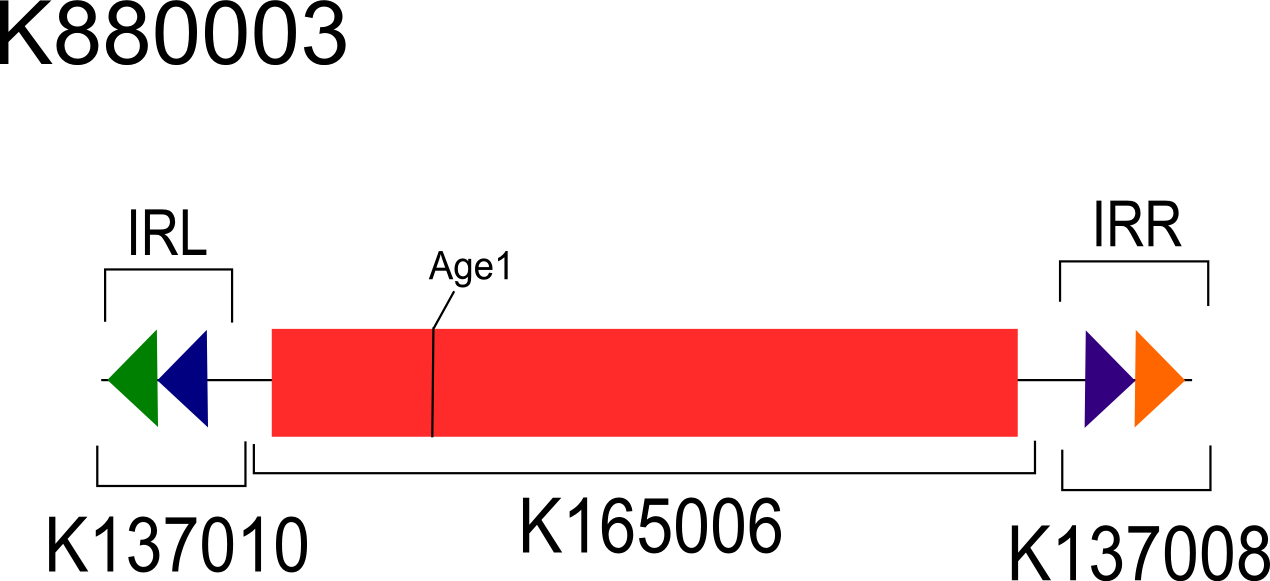Team:Michigan/Results
From 2012.igem.org
(Difference between revisions)
| Line 10: | Line 10: | ||
Introduction | Introduction | ||
</h3> | </h3> | ||
| + | |||
| + | In order to test the effectiveness of the recombinases used in our system, we developed two assays -- an “asymmetrical digest” reporter and a fluorescence reporter. The former is used to directly test the inversion of the target DNA region, while the latter is used to demonstrate inversion induced protein expression. | ||
<h2> | <h2> | ||
| Line 15: | Line 17: | ||
</h2> | </h2> | ||
| - | + | The two asymmetrical digest reporters in their unflipped state (invertible by FimE) are shown in figures 2 and 3. These reporters rely on an off-center AgeI restriction site which will yield fragments of varying size depending on the orientation of the inversion region. Table 1 shows the expected sizes of the fragments in each orientation. The differences between the reporters are discussed below. | |
<h2> | <h2> | ||
The Fluorescent Reporters | The Fluorescent Reporters | ||
</h2> | </h2> | ||
| - | + | The fluorescent reporters, show in in figures 3 and 4, have a constitutive tetR promoter within the inversion site, allowing for the expression of GFP in the flipped orientation. | |
| - | The | + | |
<br><br> | <br><br> | ||
Revision as of 00:16, 4 October 2012
Introduction
In order to test the effectiveness of the recombinases used in our system, we developed two assays -- an “asymmetrical digest” reporter and a fluorescence reporter. The former is used to directly test the inversion of the target DNA region, while the latter is used to demonstrate inversion induced protein expression.The Asymmetrical Digest Reporters
The two asymmetrical digest reporters in their unflipped state (invertible by FimE) are shown in figures 2 and 3. These reporters rely on an off-center AgeI restriction site which will yield fragments of varying size depending on the orientation of the inversion region. Table 1 shows the expected sizes of the fragments in each orientation. The differences between the reporters are discussed below.The Fluorescent Reporters
The fluorescent reporters, show in in figures 3 and 4, have a constitutive tetR promoter within the inversion site, allowing for the expression of GFP in the flipped orientation.
 "
"



